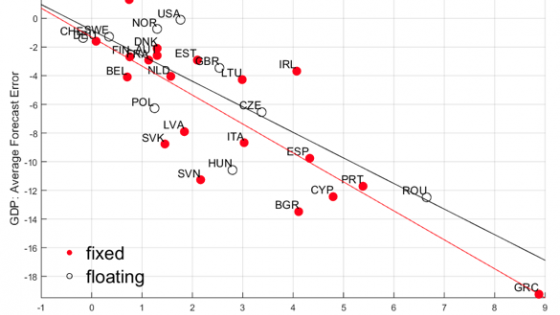First posted on:
mainly macro, 13 July 2018
I have, for obvious reasons, talked a great deal about the macroeconomic incompetence of austerity, and how it probably cost each UK household around £10,000 in lost resources on average. I have also talked about how it was based, at least after 2012, on political deceit: a pretense that cuts were necessary to reduce government debt when in reality the aim was to reduce the size of the state. (If the priority really was the deficit, why all the tax cuts?) What I have talked less about is the microeconomic incompetence in the way this reduction in the size of the state was achieved.
To many that may seem an odd thing to discuss. After all, isn’t how government spending is allocated between health, education, defence etc inevitably a political decision. But that is not how an economist would think about it. People have preferences between spending on the various goods that are allocated by the state, and so it is perfectly reasonable to ask how good a job the state does in getting the right allocation i.e. in reflecting society’s needs and preferences. If it wasn’t doing this to the first approximation (and allowing for slightly different preferences depending on political orientation) you could legitimately question whether the state was doing a good job. One of the pieces of academic research that has always stuck in my mind is a 1984 paper by Ron Smith and colleagues, who found that allocation did reflect needs and costs once you allowed for bureaucratic inertia.
As a result, it is perfectly legitimate to ask whether an attempt to shrink the state has preserved broadly the correct allocation or distorted it. After all, if a Labour government substantially increased government spending in random ways with no coherent plan everyone would be quite right to complain. So exactly the same should be true in reverse: if you are going to shrink the state you should do so in a planned way.
There was of course no public plan set out in 2010 discussing what parts of the state should be smaller and why. Was there a secret plan that guided Osborne and the Treasury’s decisions? Perhaps he had to keep his plan secret because if it had ever been made public it would have been very unpopular. As I have noted many times, there has never been in the UK more than 10% of the population that wanted a smaller state. That is why state reduction had to be done by deceit, as a few journalists have been prepared to acknowledge in public. But if you are going to do something by deceit, and have kept your master plan of where the state should be shrunk secret, you probably deserve people like me making the assumption that there is no plan beyond political expediency. So I will assume that the only plan was to make the cuts in areas that they could get away with.
Under certain assumptions, that idea of cutting until the pips squeak is in itself not a bad method. In particular, if you think that there is a lot of waste and inefficiency in public spending (because of lack of competition etc), then this mechanism may be one way of getting rid of that waste and inefficiency. However some of the assumptions required for that method to work show clearly why it is in fact a very bad method. One assumption is that each part of public spending has an equal political voice, and will shout only as loud as the real pain of cuts. The real world is just not like that.
Take pensions and social care as two examples. The state pension has been austerity free, probably for the simple reason that pensioners tend to vote Conservative. So why has social care, which is used by the same people, been subject to savage cuts that are highly likely to have led to many premature deaths? The answer is in part that people do not have full information: the papers they read do not talk about cuts to social care very much. It is also because social care is the responsibility of local government, and so cuts can be blamed on local councillors rather than central government.
I started thinking about this again after reading an article by John Harris, who discusses the perilous state of UK local government. As he says, political “journalists who work themselves into a lather about this or that item of Westminster gossip hear the dread phrase “local government” and glaze over.” Do you know who the minister for local government is? I had to look it up. So the feedback mechanism that tells the Chancellor and the Treasury that cuts in local government have gone too far is largely absent and can be neutralised. As a result, that is one place where further cuts are still in the pipeline.
Groups that have been particularly badly hit by cuts, the disabled and poor, also happen to be those with little political voice. In some other areas the extent to which cuts took place depended on simple spin. Because of the spin that the NHS budget had been protected, it suffered sharp cuts because it normally grows substantially for various good reasons. Is this all part of a master plan, or just what was politically convenient?
Economists go on about the efficient allocation of resources, and that should apply just as much to public goods as private goods. The fact that this allocation is achieved through political decisions rather than responses to price signals makes it easier to get things wrong, but it should not mean allocations are random. So any departures from a reasonable allocation due to a programme of cuts which has been and is being allocated based on essentially arbitrary factors should be a major cause of concern. In simple english, not only was the Conservatives’ attempt to shrink the state done at the worst possible time for the economy as a whole, it has also been done in an incompetent way in terms of how spending is allocated.




